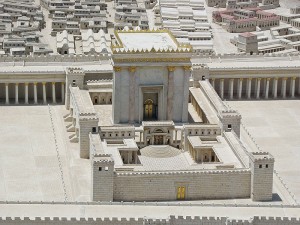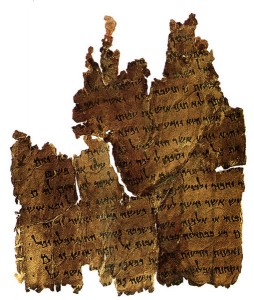Rediscovering the Dead Sea Scrolls

Shrine of the Book, Israel Museum, http://commons.wikimedia.org/wiki/File:Israel_-_Jerusalem_-_Shrine_of_the_Book.jpg
Why are literally hundreds of thousands of people streaming to exhibits of the Dead Sea Scrolls all over the United States and the rest of the world? Why should anyone even care about these remnants of close to 900 scrolls from the second and first centuries BCE and the first century CE? What possesses some of us in academia to devote our professional careers to teaching and research about the Scrolls?
The discovery of the first scrolls by Bedouin in 1947 in Cave 1 at Qumran, on the northwestern shore of the Dead Sea, set off a wave of excitement. But this initial interest was misused by scholars who were intent on understanding the Dead Sea Scrolls and the Second Temple period Jewish sect that gathered them as a precursor of Christianity. To make matters even worse, the long delays in publication that ensued understandably fostered conspiracy theories worthy of Dan Brown and the Da Vinci Code, and served as a great distraction from the Scrolls’ real significance and message. After all, they are Second Temple period texts authored, copied and left for us by Jews who lived and breathed devotion to God’s… Continue reading
Second Temple Period Rationales for the Torah’s Commandments: Conclusion
We have observed rudimentary attempts to provide rationales for commandments in Second Temple literature written in Hebrew. In Jubilees, real rationales were very rare and most of what we encountered was simply etiologies, the claim that since the Patriarchs had observed a certain commandment, their descendants should continue to observe it. Similar lack of emphasis on rationales for commandments is observable in Dead Sea Scrolls texts. Here we found reasons being given for certain legal prescriptions that were actually not direct Torah commandments. In a few cases, rationales for commandments were indeed found. We do need to remember that the legal texts in the Qumran corpus, with the exception of the Temple Scroll, are exceedingly fragmentary. Further, the Temple Scroll masquerades as a Torah and for this reason would not be replete with such reasons. Nonetheless, we see here or there that reasons were occasionally given, showing evidence of the beginnings of the quest to explain the commandments rationally to those expected to practice them.
From our study of Philo and Josephus it would certainly appear that the full-fledged attempt to provide rationales for commandments—ta`amei ha-mitzvot–seems to stem from the inherent and, in fact, directly acknowledged… Continue reading
Second Temple Period Rationales for the Torah’s Commandments: Dead Sea Scrolls
In our next section, we consider examples drawn from the Dead Sea Scrolls, in particular the sectarian scrolls regarded as representing the views of the sect that gathered the Dead Sea Scrolls at Qumran. We will see here that true rationales for commandments are for the most part lacking. We will note a few cases in which rationales are given for various rulings but these are for the most part rationales for minor details, not the commandment as a whole. In fact, we found it very surprising that so few examples could be gathered.
We begin with the Zadokite Fragments (Damascus Document), a text originally found in medieval manuscripts in the Cairo Genizah that later turned up in multiple fragmentary copies at Qumran. In CD 4: 21-5:1 we are given a reason for the sect’s understanding that polygamy is forbidden according to the Torah, and that prohibition included remarriage by a divorced man or woman as long as the original spouse remained alive. The rationale is given as follows:
for the foundation of creation is, “male and female He created them” (Genesis 1:27), and those who entered the ark, “two by two they came into the ark” (Gen.… Continue reading


